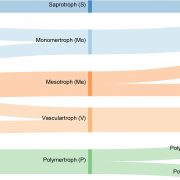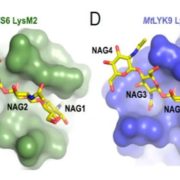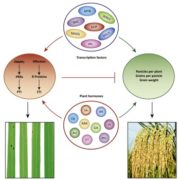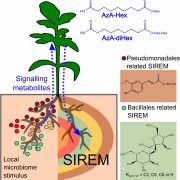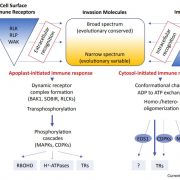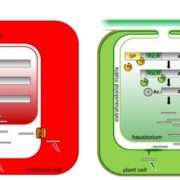Review: CEP hormones at the nexus of nutrient acquisition and allocation, root development, and plant–microbe interactions
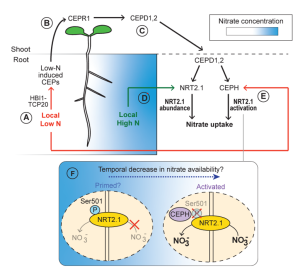 C-TERMINALLY ENCODED PEPTIDE (CEP) is a multigene family of peptide hormones originally described as systemic long-distance signals in response to nitrogen limitation. Over the years since the discovery of these peptide hormones, the literature on CEP biology has expanded the repertoire of developmental and physiological roles in planta beyond nitrogen demand signaling. This review by Taleski et al. is a timely update on the multifaceted functions of CEP hormones in various biological processes including nutrient uptake, root development, and plant-microbe symbioses in angiosperms. Furthermore, the review features emerging themes and evidence on topics like plant immunity, where an atypical CEP member functions as novel immune-responsive phytocytokine to modulate plant health. The authors also discuss the specificity of different members of the CEP family. As an example, CEP2, but not other CEPs, seems to have a role in interactions with arbuscular mycorrhizae. CEP2 is downregulated by the presence of the fungi, promoting root growth. As CEP signaling is postulated to be conserved throughout all seed plants, it will be interesting to see if there is a common conserved signaling network across families and lineages. For example, CEP function in gymnosperms has not been investigated yet. This review provides a valuable update on CEP hormone function. (Summary by Marvin Jin @MarvinJYS) J. Exp. Bot. 10.1093/jxb/erad444
C-TERMINALLY ENCODED PEPTIDE (CEP) is a multigene family of peptide hormones originally described as systemic long-distance signals in response to nitrogen limitation. Over the years since the discovery of these peptide hormones, the literature on CEP biology has expanded the repertoire of developmental and physiological roles in planta beyond nitrogen demand signaling. This review by Taleski et al. is a timely update on the multifaceted functions of CEP hormones in various biological processes including nutrient uptake, root development, and plant-microbe symbioses in angiosperms. Furthermore, the review features emerging themes and evidence on topics like plant immunity, where an atypical CEP member functions as novel immune-responsive phytocytokine to modulate plant health. The authors also discuss the specificity of different members of the CEP family. As an example, CEP2, but not other CEPs, seems to have a role in interactions with arbuscular mycorrhizae. CEP2 is downregulated by the presence of the fungi, promoting root growth. As CEP signaling is postulated to be conserved throughout all seed plants, it will be interesting to see if there is a common conserved signaling network across families and lineages. For example, CEP function in gymnosperms has not been investigated yet. This review provides a valuable update on CEP hormone function. (Summary by Marvin Jin @MarvinJYS) J. Exp. Bot. 10.1093/jxb/erad444


